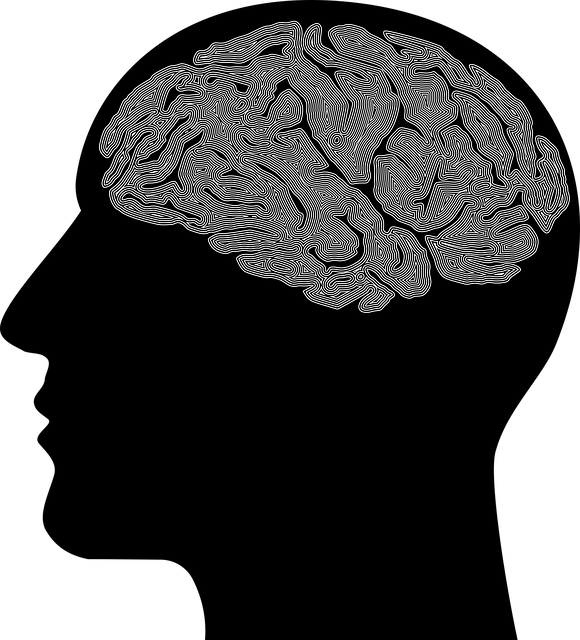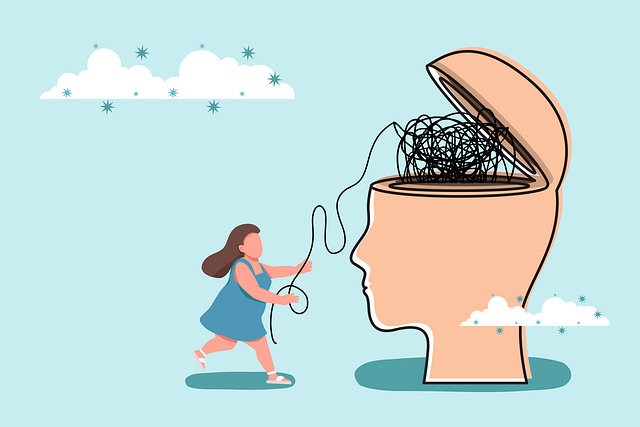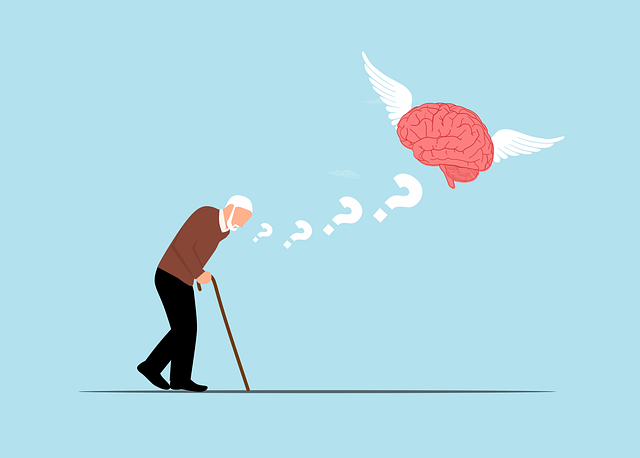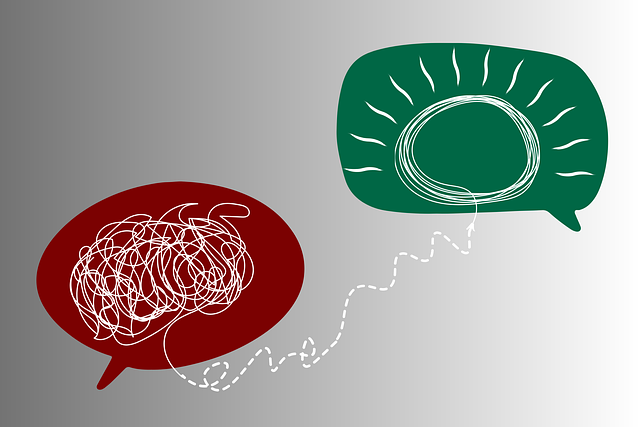Depression prevention and management in Boulder leverages Acceptance and Commitment Therapy (ACT), emphasizing emotional acceptance, mindfulness, and action aligned with personal values. Integrating practices like positive thinking, journaling, and a balanced lifestyle—including nutrition, exercise, and sleep—into ACT treatments enhances self-awareness and resilience. Building robust social support networks through community engagement and fostering open communication further strengthens mental wellness. Boulder ACT, combined with professional guidance, promotes emotional intelligence and empowers individuals to proactively prevent and manage depression, contributing to a healthier community.
Depression is a prevalent yet complex condition affecting millions. Prevention is key, and understanding its nuances is essential. This article explores comprehensive strategies to safeguard your mental health, from recognizing depression’s subtle signs to implementing effective tools like Boulder Acceptance and Commitment Therapy (ACT). Discover how lifestyle adjustments, social connections, professional support, and self-care practices can empower you in the fight against this powerful adversary.
- Understanding Depression: Recognizing the Signs and Symptoms
- Boulder Acceptance and Commitment Therapy (ACT): A Powerful Tool for Prevention
- Lifestyle Changes for Mental Well-being: Nutrition, Exercise, and Sleep
- Social Connections and Support Networks: Building a Strong Foundation
- Professional Help and Self-Care Practices: Seeking Assistance and Nurturing Resilience
Understanding Depression: Recognizing the Signs and Symptoms

Depression is a complex mental health condition that significantly impacts an individual’s daily life and overall well-being. Recognizing the signs and symptoms is the first step in preventing and managing this disease. It often presents as persistent feelings of sadness, loss of interest, or pleasure in activities once enjoyed, changes in appetite and sleep patterns, fatigue, difficulty concentrating, and, in severe cases, thoughts of self-harm. These indicators can be subtle and may vary from person to person, making it crucial to stay vigilant and seek guidance if needed.
In Boulder, Acceptance and Commitment Therapy (ACT) has gained popularity as an effective approach to fostering mental wellness. This therapy encourages individuals to accept their emotions, cultivate emotional intelligence, and engage in actions aligned with personal values. Additionally, incorporating practices like positive thinking and journaling can be transformative. Maintaining a mental wellness journal is a powerful tool for self-reflection and tracking mood patterns. It provides guidance on documenting thoughts, feelings, and experiences, allowing individuals to gain insights into their emotional state and identify potential triggers or coping mechanisms that promote resilience and overall well-being.
Boulder Acceptance and Commitment Therapy (ACT): A Powerful Tool for Prevention

Boulder Acceptance and Commitment Therapy (ACT) has emerged as a powerful tool in depression prevention strategies. This therapeutic approach emphasizes acceptance of difficult emotions rather than trying to avoid or suppress them, promoting emotional intelligence and mental wellness. ACT encourages individuals to align their actions with personal values, fostering a sense of purpose and meaning that can buffer against depressive episodes. By focusing on the present moment and cultivating mindfulness, it helps break the cycle of negative thought patterns and behaviors associated with depression.
In the context of Mental Health Policy Analysis and Advocacy, ACT’s emphasis on value-based action aligns well with promoting mental wellness at a societal level. Emotional intelligence, developed through ACT, is crucial for navigating interpersonal relationships and stressor management, which are key factors in preventing depressive disorders. Furthermore, integrating ACT into Mental Wellness Coaching Programs Development can equip individuals with practical tools to enhance their resilience, cope effectively with challenges, and maintain a positive outlook, ultimately contributing to a more robust mental health ecosystem.
Lifestyle Changes for Mental Well-being: Nutrition, Exercise, and Sleep

In the pursuit of mental well-being, lifestyle changes play a pivotal role, especially when it comes to depression prevention. Nutritious eating is a powerful tool; incorporating foods rich in omega-3 fatty acids, vitamin D, and B vitamins can significantly impact mood regulation. A balanced diet, free from excessive sugar and processed foods, supports brain health and overall resilience against depressive episodes.
Physical activity is another cornerstone of this strategy. Regular exercise, such as that recommended by Boulder Acceptance and Commitment Therapy (ACT) practitioners, releases endorphins known to reduce stress and anxiety, while also improving sleep quality. This combination of reduced stress and enhanced sleep has been linked to better mood and increased resilience against mental health challenges, including depression. Furthermore, prioritizing adequate sleep allows the body to rejuvenate, promoting emotional balance and enhancing one’s ability to cope with life’s demands, thereby serving as an effective Stress Reduction Method and Anxiety Relief technique.
Social Connections and Support Networks: Building a Strong Foundation

Having a strong social support network is vital for mental health and depression prevention. Building meaningful connections and fostering healthy relationships can provide individuals with a sense of belonging, purpose, and emotional resilience. In today’s digital age, it’s essential to balance online interactions with in-person connections, as vibrant community outreach programs and local support groups facilitate this. Engaging in activities that promote social interaction, such as joining clubs, volunteering, or participating in community events, can help combat feelings of isolation and loneliness.
Boulder Acceptance and Commitment Therapy (ACT) emphasizes the importance of cultivating strong social ties as a key component of well-being. By learning effective communication skills, conflict resolution techniques, and fostering an atmosphere of mental health awareness, individuals can strengthen their support networks. This, in turn, can help prevent depression by providing a safe space to share experiences, offer support, and gain different perspectives on life’s challenges.
Professional Help and Self-Care Practices: Seeking Assistance and Nurturing Resilience

Seeking professional help is a proactive step towards preventing and managing depression. Boulder Acceptance and Commitment Therapy (ACT), for instance, offers effective strategies to cultivate mental resilience. This form of therapy focuses on accepting one’s thoughts and emotions, while encouraging individuals to commit to actions that align with their values. By learning to navigate difficult feelings without judgment, individuals can build emotional flexibility, a key component in preventing depressive episodes.
In conjunction with professional support, self-care practices play an integral role in fostering resilience. This involves adopting healthy habits such as regular exercise, sufficient sleep, and mindfulness techniques. Engaging in activities that nurture emotional well-being, like hobbies or social connections, can also help buffer against stress and promote positive mental health. Additionally, Mental Illness Stigma Reduction Efforts and Healthcare Provider Cultural Competency Training contribute to creating supportive environments where individuals feel comfortable seeking assistance, ensuring that they receive culturally sensitive care tailored to their unique needs.
In conclusion, preventing depression involves a multi-faceted approach. By understanding its signs and symptoms, adopting evidence-based strategies like Boulder Acceptance and Commitment Therapy (ACT), implementing lifestyle changes such as proper nutrition, exercise, and sleep, fostering strong social connections, and seeking professional help when needed, individuals can build resilience and promote mental well-being. These strategies, when combined, offer a comprehensive framework to safeguard against depression and enhance overall life satisfaction.











